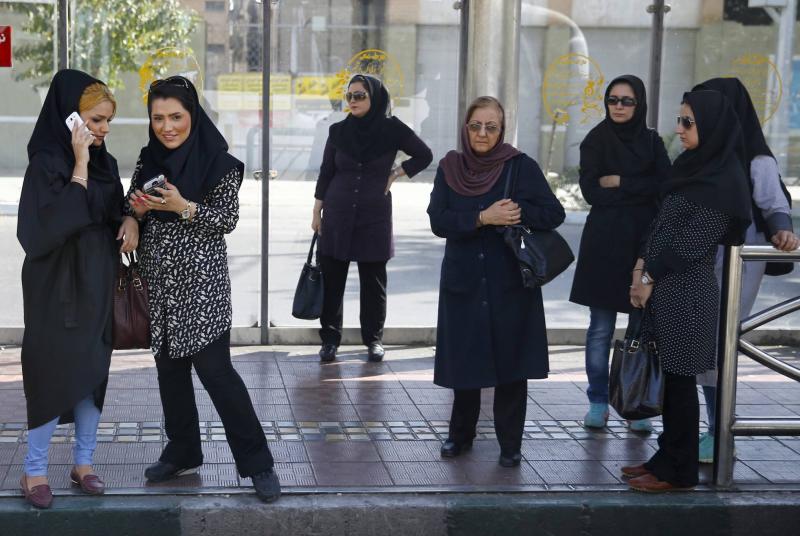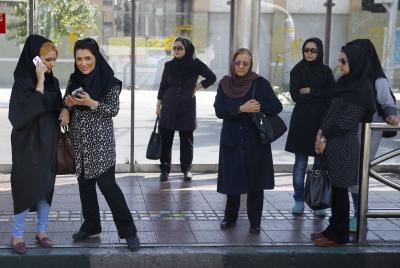Iranian President Ebrahim Raisi announced today, Saturday, that "the hijab is a law in the country," stating that "if some say they do not believe in the hijab, it is good to use persuasion, but the important point is that there is a legal obligation and the hijab is currently a legal matter."
Raisi's remarks followed the circulation of a video showing a man throwing yogurt at two women not wearing hijabs in a store. The judicial authorities in a town near the city of Mashhad in northeastern Iran issued an arrest warrant for the man seen pouring yogurt over the heads of the women, who are a mother and daughter. Official media reported that arrest warrants were also issued for the two women for violating the strict rules governing women's attire in Iran.
Hosein Mohseni-Ejei, the head of the Iranian judiciary, threatened today to pursue those who appear in public without hijabs "without mercy," according to Iranian media. He indicated that "not wearing the hijab amounts to hostility toward our values," stressing that those "committing such disruptive acts will be punished and tried without mercy," without specifying the punishment.
This warning from the head of the judiciary came in the wake of a statement from the Interior Ministry on Thursday supporting the government's mandatory hijab law. The Interior Ministry's statement described the hijab as "one of the pillars of Iranian civilization and one of the practical principles of the Islamic Republic of Iran," affirming that there will be no retreat or leniency in this matter. The statement also urged citizens to confront unveiled women.
An increasing number of Iranian women have removed their hijabs since the death of Kurdish Mahsa Amini while in the custody of the morality police last September. Security forces took violent measures to quell protests that lasted for months across the country following the death of the 22-year-old woman.
Under the interpretation of Islamic law in Iranian law established after the 1979 revolution, women are required to cover their hair and wear long, loose-fitting clothing, with offenders facing public reprimand, fines, or detention.




